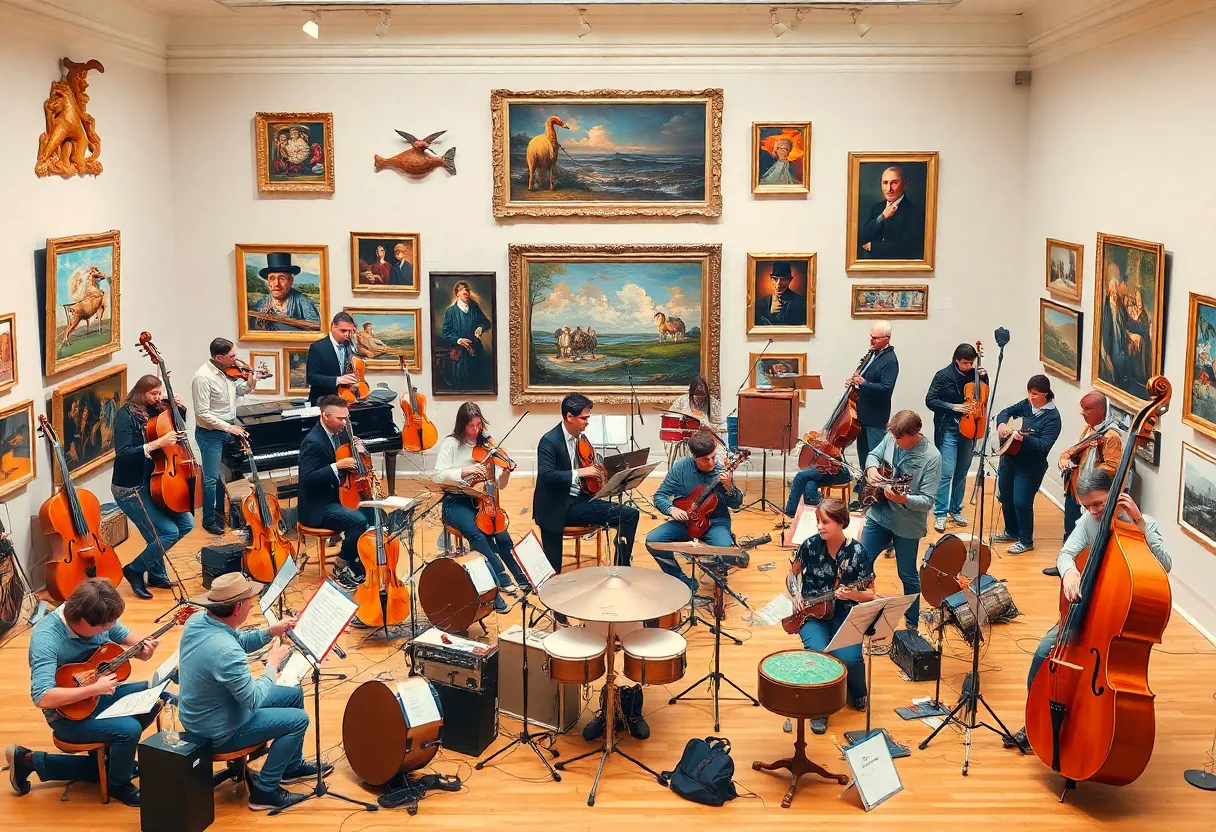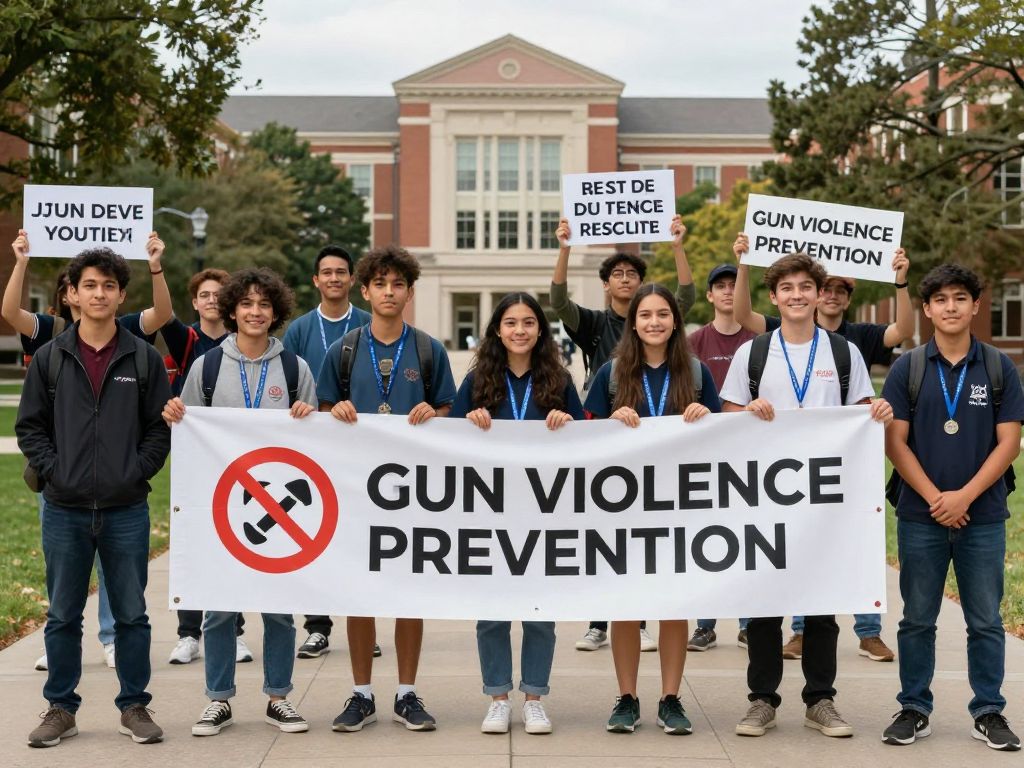Boston, October 23, 2025
News Summary
Museums and cultural institutions in Boston are being urged to collaborate to create a sustainable music ecosystem in response to challenges facing traditional funding. By partnering with college radio stations and local music journalism, these institutions can implement innovative programming that features local talent. The Museum of Fine Arts plans to enhance the value of its collection through live performances, while a new rehearsal space is set to meet the needs of local musicians. Collaboration is presented as a vital strategy to sustain and enrich Boston’s music scene connected to its museums.
Boston — Museums and cultural institutions in Boston are being urged to work together to build a regional museum music ecosystem as traditional cultural funding models face new pressures. Collaboration among museums, college radio stations, local press and other cultural partners is presented as a practical, low-cost way to sustain live and recorded music tied to museum programs and collections.
Key developments and immediate context
Traditional cultural funding models are threatened by federal decisions, prompting a need for a cottage industry in museum music in Eastern Massachusetts. Collaborative efforts among institutions can create this cottage industry with minimal new resources required. College radio stations and museums in Boston can work together to curate new music. Local music press and blogs can follow the lead of Wasylak by reporting on museum music in Metro Boston. Individual museums may seek collaboration or expertise from the record company operated by the Smithsonian Institution if regional leadership is absent.
Boston’s museums are plentiful and vital, with a wealth of musical talent both homegrown and from its educational and cultural institutions. Current leadership in museum music is centered in the Berkshires, as highlighted by Victoria Wasylak’s recent report. The writer, Paul M. Piwko, emphasizes that collaboration is essential for developing an economy around museum music.
Museum programming and notable exhibitions
The upcoming display of the “Kneisel, Grün” Stradivarius violin of 1714 at Boston’s Museum of Fine Arts (MFA) will include performances by accomplished musicians like Daniel Chong and Nathan Cole. The violin was previously owned by famous violinist Franz Kneisel, a key figure in establishing concert culture in the U.S. The MFA aims to showcase its collection of string instruments and will host concerts as part of the exhibition of the Stradivarius to ensure the instrument is played, not just displayed.
Community facilities and rehearsal space
The city of Boston plans to replace the demolished Sound Museum, a vital rehearsal space for local musicians, with a new facility that will include affordable housing. The development of the replacement space at 290 North Beacon St. will be managed by The Community Builders and will aim to include high-quality rehearsal conditions and amenities that local musicians desire. Advocates for displaced musicians are pushing for a facility that meets their needs, including 24-hour access and the return of displaced musicians to the new space. The replacement project is still in its early stages, with completion expected by 2029 or 2030.
Why collaboration is presented as the solution
Proponents of a collaborative approach note that Boston has a strong history of building an economy around the arts, health, and education. Engaging with music—both listening and creating—has demonstrated positive wellness benefits, similar to visiting museums. Building partnerships can leverage existing institutional resources—venues, collections, curators, student ensembles, and media platforms—without requiring large new grants or single-source funding.
Practical steps suggested
- Pair museum exhibitions with live or recorded musical programs drawn from local talent and institutional ensembles.
- Coordinate with college radio stations to curate and broadcast museum-related music and new recordings.
- Encourage local music press and blogs to include coverage of museum-related performances and releases.
- When regional leadership is not available, seek collaboration or expertise from national institutions’ record operations to support production quality and distribution.
What this means for audiences and artists
Audience members can expect more programming that pairs collections with live or recorded music, while musicians displaced by venue changes may find a path to return via new rehearsal and performance facilities. Museums that emphasize playing instruments from their collections are positioning exhibits to be experienced as living sound as well as visual display.
FAQ
What is the state of Boston’s museums and musical talent?
Boston’s museums are plentiful and vital, with a wealth of musical talent both homegrown and from its educational and cultural institutions.
Where is current leadership in museum music centered?
Current leadership in museum music is centered in the Berkshires, as highlighted by Victoria Wasylak’s recent report.
Why is a cottage industry for museum music being proposed?
Traditional cultural funding models are threatened by federal decisions, prompting a need for a cottage industry in museum music in Eastern Massachusetts.
How can institutions develop museum music with limited funds?
Collaborative efforts among institutions can create this cottage industry with minimal new resources required.
Who can help curate and broadcast museum-related music?
College radio stations and museums in Boston can work together to curate new music.
How can local media contribute?
Local music press and blogs can follow the lead of Wasylak by reporting on museum music in Metro Boston.
What options exist if local leadership is absent?
Individual museums may seek collaboration or expertise from the record company operated by the Smithsonian Institution if regional leadership is absent.
Are there wellness connections between music and museum visits?
Engaging with music—both listening and creating—has demonstrated positive wellness benefits, similar to visiting museums.
What notable exhibition is mentioned?
The upcoming display of the “Kneisel, Grün” Stradivarius violin of 1714 at Boston’s Museum of Fine Arts (MFA) will include performances by accomplished musicians like Daniel Chong and Nathan Cole.
What is planned for the demolished Sound Museum?
The city of Boston plans to replace the demolished Sound Museum, a vital rehearsal space for local musicians, with a new facility that will include affordable housing.
Who will manage the replacement development at 290 North Beacon St.?
The development of the replacement space at 290 North Beacon St. will be managed by The Community Builders and will aim to include high-quality rehearsal conditions and amenities that local musicians desire.
What are advocates asking for regarding displaced musicians?
Advocates for displaced musicians are pushing for a facility that meets their needs, including 24-hour access and the return of displaced musicians to the new space.
When is the replacement project expected to be completed?
The replacement project is still in its early stages, with completion expected by 2029 or 2030.
Who emphasized the need for collaboration to develop an economy around museum music?
The writer, Paul M. Piwko, emphasizes that collaboration is essential for developing an economy around museum music.
Quick reference table
| Topic | Detail |
|---|---|
| Regional need | Traditional cultural funding models are threatened by federal decisions, prompting a need for a cottage industry in museum music in Eastern Massachusetts. |
| Proposed approach | Collaborative efforts among institutions can create this cottage industry with minimal new resources required. |
| Local partners | College radio stations and museums in Boston can work together to curate new music. |
| MFA exhibition | The upcoming display of the “Kneisel, Grün” Stradivarius violin of 1714 at Boston’s Museum of Fine Arts (MFA) will include performances by accomplished musicians like Daniel Chong and Nathan Cole. |
| Rehearsal space replacement | The city of Boston plans to replace the demolished Sound Museum, a vital rehearsal space for local musicians, with a new facility that will include affordable housing. |
| Project management | The development of the replacement space at 290 North Beacon St. will be managed by The Community Builders and will aim to include high-quality rehearsal conditions and amenities that local musicians desire. |
| Timeline | The replacement project is still in its early stages, with completion expected by 2029 or 2030. |
Deeper Dive: News & Info About This Topic
HERE Resources
Boston Celebrates Creativity and Community this October
Exploring October Events Across North Shore Communities
Boston’s October: A Month of Celebrations and Events
Boston’s Rose Kennedy Greenway Hosts Fall Fest and Movie Nights
Explore Cultural Wonders in Lenox, Massachusetts
Federal Shutdown Threat Looms Over Massachusetts
Boston Offers Diverse Halloween Events for All
Cultural Programming in Cambridge and Somerville This Week
Cultural and Community Events Highlight October in Boston
Boston Hosts a Diverse Array of Live Music and Arts Events
Additional Resources
- Boston Globe: Letters on Museum Music
- The Violin Channel: Boston Museum Acquires Stradivarius Violin on Loan
- Harvard Crimson: Boston Selects Developer for Replacing Sound Museum
- Patriot Ledger: Museum of Science Taylor Swift Experience Tickets
- Bay State Banner: Celebrate Juneteenth in Boston
- Wikipedia: Museum music
- Google Search: museum music boston
- Google Scholar: museum music
- Encyclopedia Britannica: museum music
- Google News: museum music boston

Author: STAFF HERE BOSTON WRITER
The BOSTON STAFF WRITER represents the experienced team at HEREBoston.com, your go-to source for actionable local news and information in Boston, Suffolk County, and beyond. Specializing in "news you can use," we cover essential topics like product reviews for personal and business needs, local business directories, politics, real estate trends, neighborhood insights, and state news affecting the area—with deep expertise drawn from years of dedicated reporting and strong community input, including local press releases and business updates. We deliver top reporting on high-value events such as Boston Marathon, Head of the Charles Regatta, and Boston Harborfest. Our coverage extends to key organizations like the Greater Boston Chamber of Commerce and Associated Industries of Massachusetts, plus leading businesses in finance, biotech, and insurance that power the local economy such as Fidelity Investments, Biogen, and Liberty Mutual Insurance. As part of the broader HERE network, we provide comprehensive, credible insights into Massachusetts's dynamic landscape.





